At 5 weeks old puppies will go through what is commonly referred to as a short 'fear period' - where they may become more unsure of an object or situation that they were previously comfortable with. This has been quite noticeable with a few of Prue's puppies - some more than others.
As the puppies pass through this 'fear period' we are more cautious about triggering that startle recovery process. The puppies need only to experience very mild startles and they need to recover immediately. It is also important to continue introducing new and novel objects which we are continuing to do. We have introduced the puppies to the great outdoors. The puppies have immunity from their mother that will last until they are approximately 8 weeks old so they are relatively safe to do this. Introducing the puppies to the outdoors, the smells, the surfaces - including grass is so important to young puppies. The puppies took it all in their stride and loved running through the grass! We also took the puppies on a 'road trip' to the training barn as it hasn't been used now for over a month, and was heavily cleaned when we stopped the classes due to the Covid 19 virus. I particularly wanted to introduce the puppies to car travel, and wanted them to also experience a totally new environment. They all fell asleep in the car and then had a gallop around the barn before falling asleep again. I have attached some pictures below. We are still following the puppy culture program which emphasises the importance of communication between dogs and people, calling this the Communication Trillogy. They advocate three exercises; 1. Introducing a marker or in our case a 'clicker' 2. Teaching puppies to offer behaviour to gain a response. 3. Manding - offering a sit behaviour to ask for attention/rewards. Introducing these exercises can also support the development of impulse control, which is defined as the ability to delay gratification. Teaching the puppies to offer behaviours - teaches the puppies impulse control. For example a puppy that wants attention could obtain instant gratification by jump up to gain attention - or if it has been taught to offer a suitable behaviour like a sit for attention (Manding) then this becomes that default behaviour instead. Teaching these behaviours can also help to reduce frustration as the puppy know what to do to gain that all important attention it wants. Many people worry that teaching a 'sit' behaviour to puppies will prevent them being showdogs in the future. This is simply not true - as I can testify from my previous litter. You just need to teach a stand behaviour too and then introduce commands (cues) so that the puppy understands the difference. Its a little extra work but well worth it! We have already introduced the puppies to the clicker. Pairing the sound of the clicker with a small piece of chicken. Needless the puppies were very excited by the presence of the chicken and were not worried at all by the clicker. We have taught them all to sit via luring - they just need a bit more practise!! 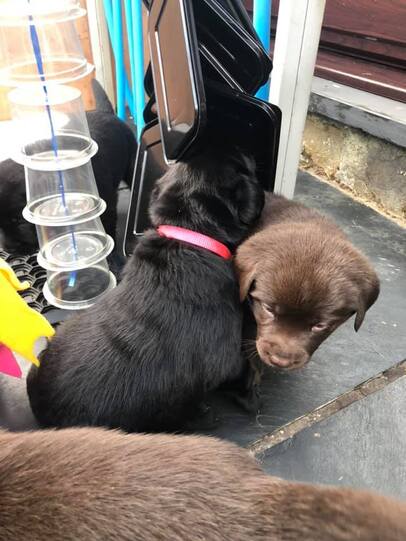 At four weeks old Prue's puppies are getting stronger on their feet and are starting to pounce at each other, and bite and shake toys - They are proper little time wasters - as all I want to do it sit in the puppy pen and watch them! They now have a bigger puppy pen so that they can stretch their legs and exercise. Physical fitness also improves mental fitness. The larger pen also reduces any conflict within the litter allowing them space to move away from each other if they want to. I've now created a toilet area with puppy pads to teach the puppies to use the puppy pads inside - however, because of the lovely weather we have introduced lots of time outside so the puppies are learning to toilet outside too. We are working on taking them out when they start to wake up after sleeping as this is a time when they all need to go! .....but this is obviously a work in progress as they are so young. A large pen with environmental enrichment has a huge impact on the puppies, however adding learning and problem solving activities can improve that enrichment affect even further Learning and enrichment activities produce puppies that are more stable, less prone to stress and less easily frightened. We have started adding new challenges to the puppies lives. The problem solving activities we have introduced are; 1. We are starting to feed the puppies away from the play pen, requiring them to navigate the slightly raised lip of the lip of the puppy pen to obtain their food. We are obviously aware that Labrador puppies have joints that are very underdeveloped so small raised platforms have also been introduced. 2. We are also introducing simple barrier activities, placing a bowl of food one side of a barrier and the puppy on the other. The puppies can get to the food easily by navigating around the barrier - but the puppies need to work this out for themselves. The difficulty of this task can easily be adapted and changed for each puppy depending on their level of independence. Puppies need to learn how to cope with frustration, and be able to think and work things out for themselves in order to cope with everyday life. These activities teach the puppies how to cope with frustration. Frustration is a huge factor in aggressive behaviour. If all puppies were taught how to cope with frustration from a young age, the incidences of aggression in our family dogs would be a lot lower. 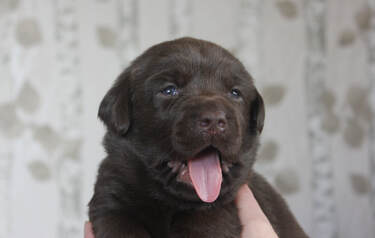 At 3 weeks old Prue's puppies are starting to solicit and extend invitations to play and they have an emotional response to new experiences and situations. Prue has begun to interact with the puppies more socially and is beginning to bond with them in a different way. The quality of the bitches interactions with the puppies has an impact on the puppies for the rest of their lives. Allowing Prue the space to move away from the puppies when she wants to is so important at this stage. Allowing Prue the space to move away when she wants allows her to spend time with her puppies but on her terms. At 3 weeks old the puppies are leaning to communicate with each other. Puppies need to learn how to communicate with other dogs if they need to cope as stable adult dogs in the future. It is quite fascinating to watch then barking, howling and growling at each other. I am also cutting the puppies nails regularly as they grow so fast. This makes feeding more comfortable for Prue and also desensitises the puppies to having their feet and nails handled in the future. This is a must for all puppies as nail cutting should be a comfortable experience for an adult dog - not something that they are frightened of. At three weeks old Prue's puppies are being introduced to a new toy or new visual object every day. Its exciting getting new toy deliveries in the post! Studies have shown that puppies raised in a stimulus rich environment with exercises and challenges, grow up to have larger brains with more neural connections than animals raised in stimulus poor environments. Puppies raised in a stimulus rich environment can actually have brains that are 5% bigger. (Puppy Culture) What does this mean?
At 3-4 weeks old we have also begun to teach 'Emotional Resilience'. A dogs ability to recover from fear is so important. Dogs that don't recover from fear quickly can lead restricted and fearful lives. Fear can affect where a dog can go and what they can cope with, dogs who show fearful behaviours can also develop aggressive behaviours. Through my behavioural work I know the impact aggression can have on people's lives and understand the importance of teaching puppies this emotional resilience. To teach emotional resilience involves triggering the startle recovery process at 3-4 weeks old. The more times a puppy is startled and recovers during this time, the more resilient they will grow up to be as adults. At 3 weeks old the puppies have virtually no fear response. At three weeks old Prue's puppies are being taken away from the other puppies individually for short amounts of time. This can help to prevent separation anxiety later in life. If being separated on a regular basis becomes normal the puppies see this as an ordinary occurrence and become habituated to that situation. Separation anxiety experienced by an adult dog can have a huge impact on a dogs quality of life and that of their owner. Prue's puppies are now three weeks old. The Critical Socialisation period is scientifically defined as being from around 3 weeks until 12 weeks of age.
During this time little time and effort is needed to produce huge emotional changes. As the puppy gets older this socialisation window closes and greater time and effort is needed to produce even small emotional change. A puppy introduced to a new person at 3 weeks old will recover quickly from the introduction and soon realise that people are safe. A 8 month old dog introduced to people or an unfamiliar person may not cope well, and will take so much longer to develop an understanding that people are safe for that dog. At over 12 weeks of age there is a change in brain chemistry that makes it so much harder for the dog to cope with new, unfamiliar noises, people, dogs etc. Socialisation is so much more than exposure to new and novel situations although this is obviously a big part of it. Dogs need to develop an understanding of social behaviour too, social behaviour around other dogs and social behaviour around people. Dogs need to become emotionally intelligent. During the socialisation period the dogs need to become familiar with 7 key things;
For more information on this see www.puppyculture.com |
Puppy Blog
This Blog follows the development stages of our puppies lives from the Prenatal Period, through the Neonatal and Transitional periods to the Critical Socialisation Period up to 12 weeks old. Archives
April 2020
Categories |
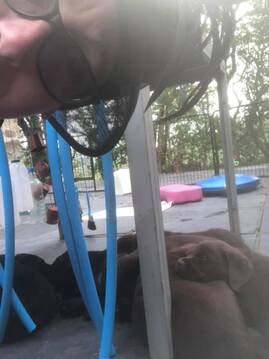
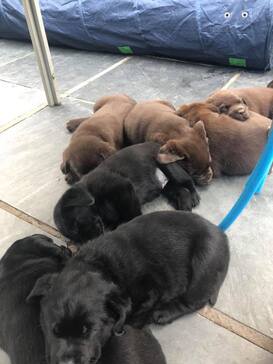
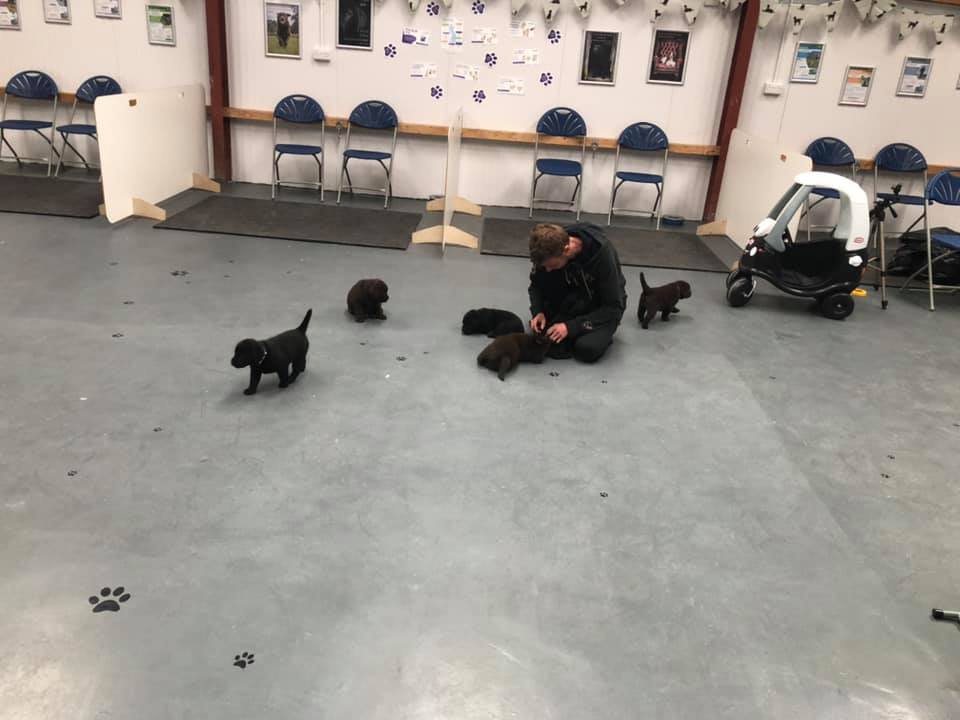
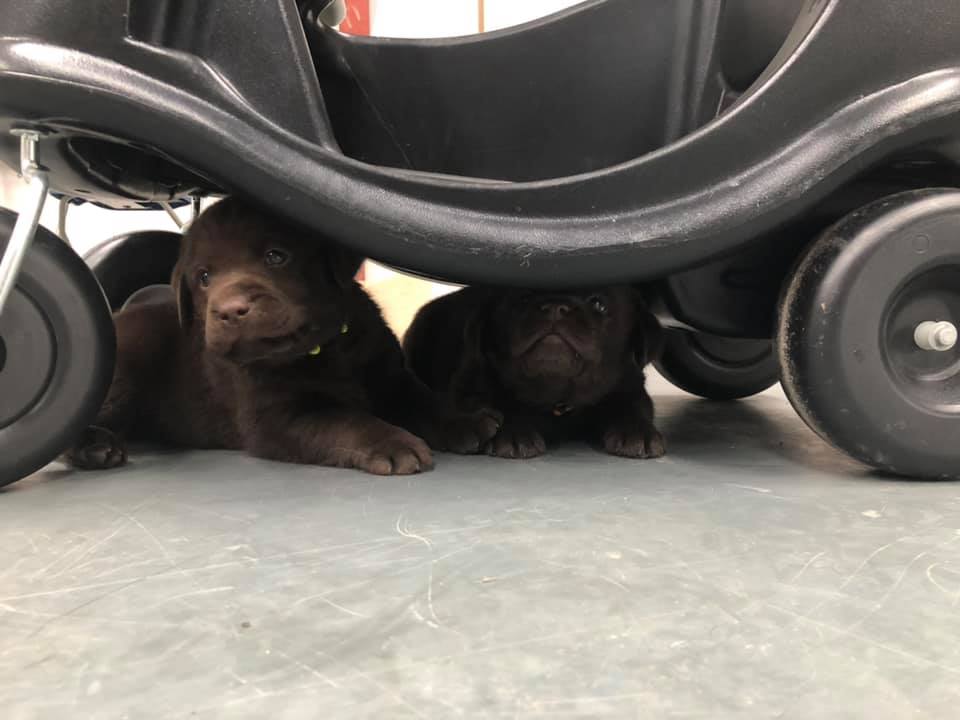
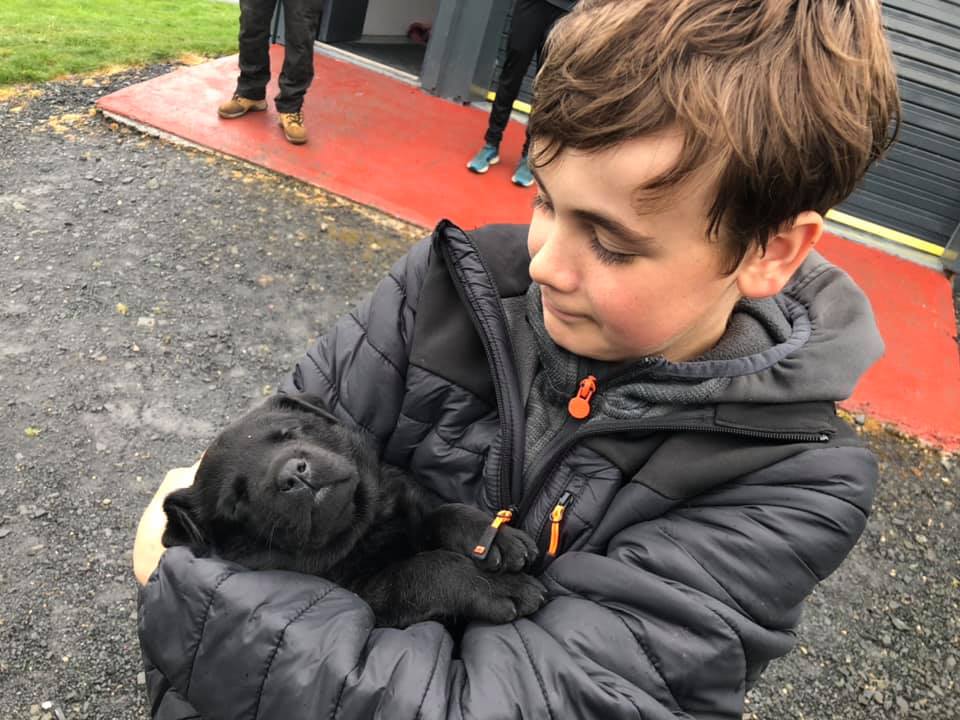
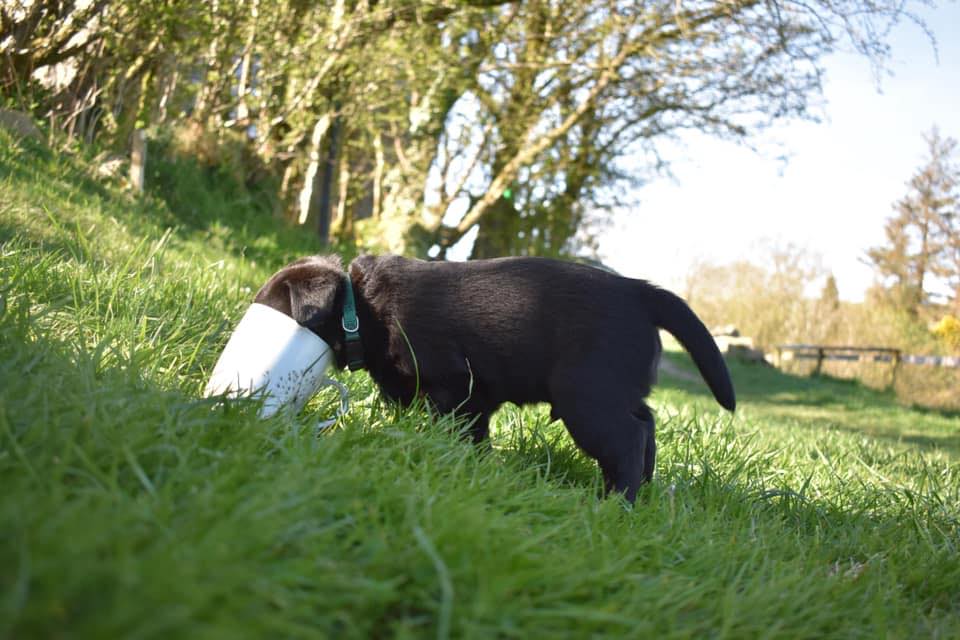
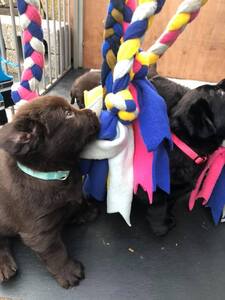
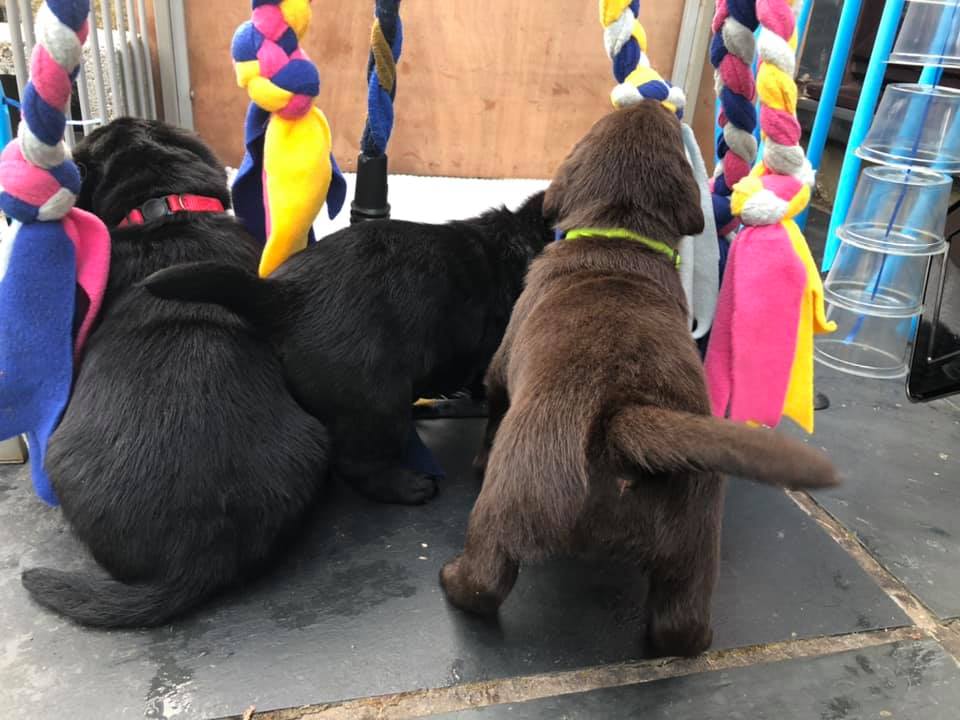
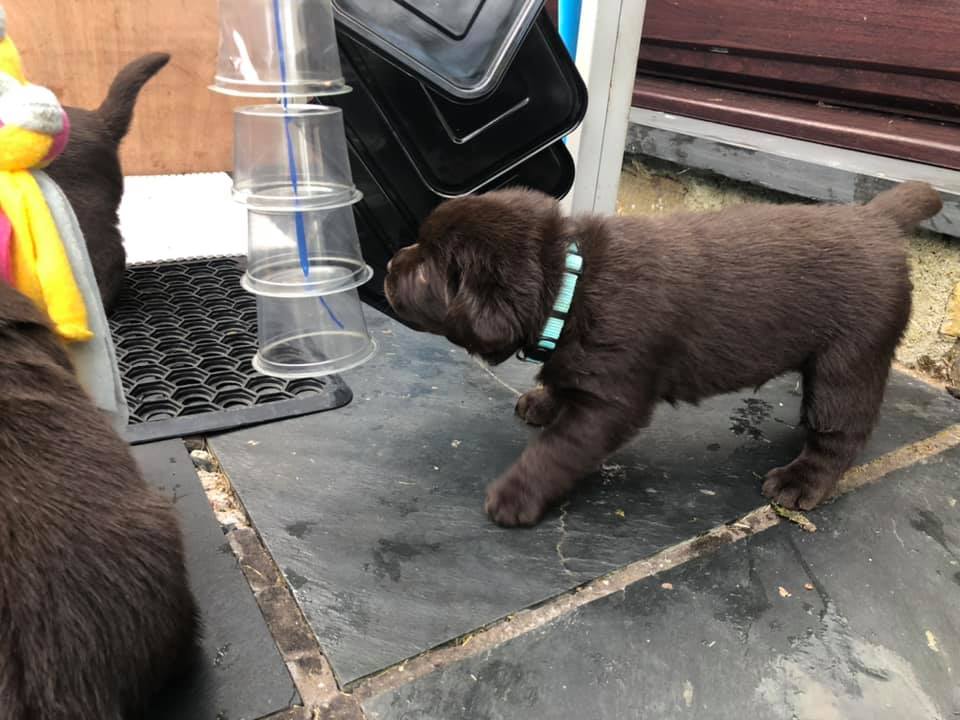
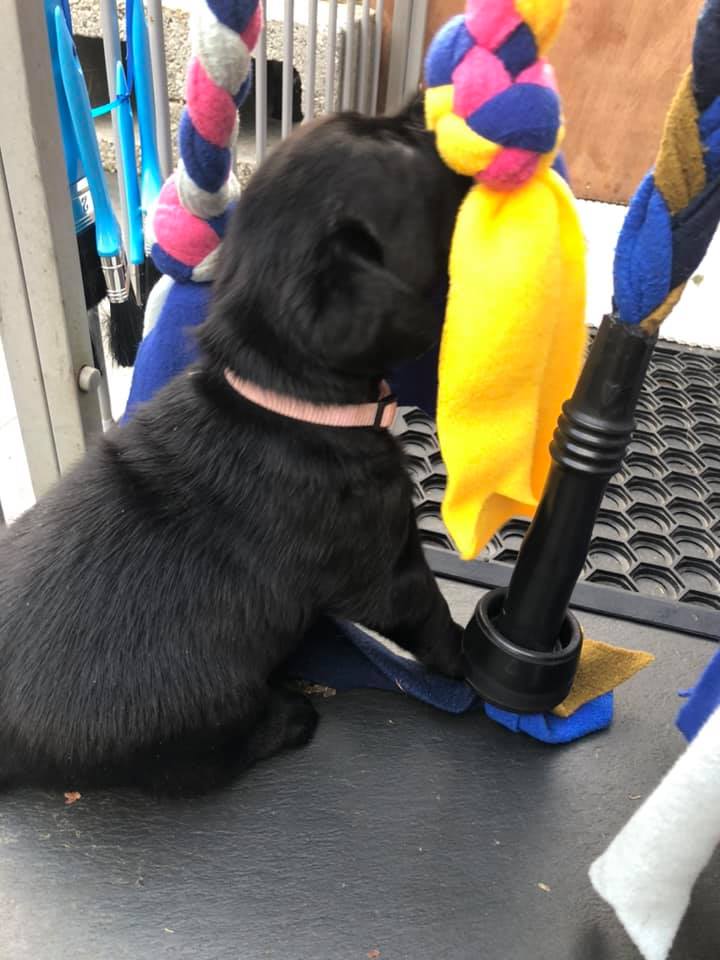
 RSS Feed
RSS Feed
